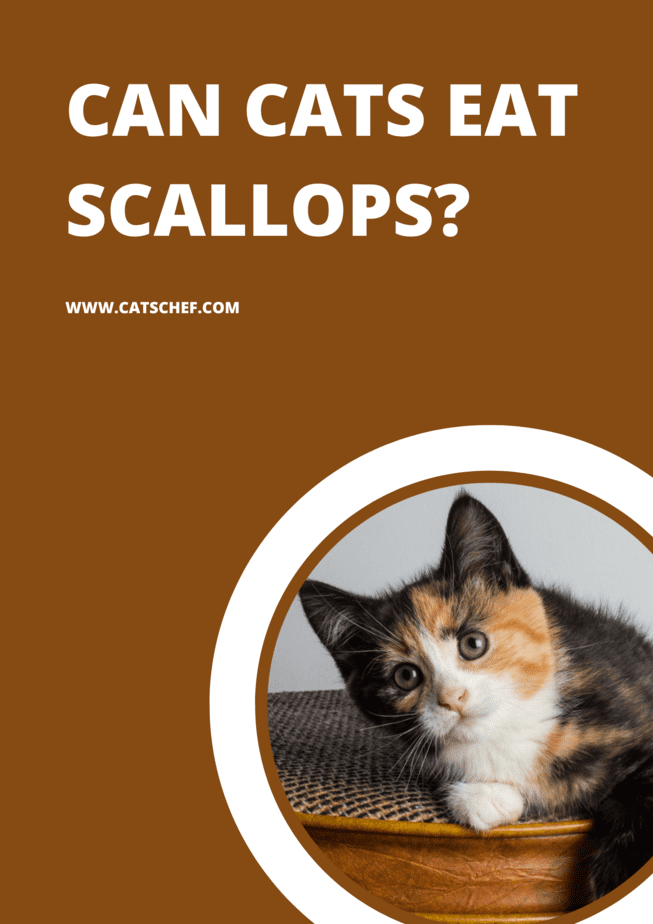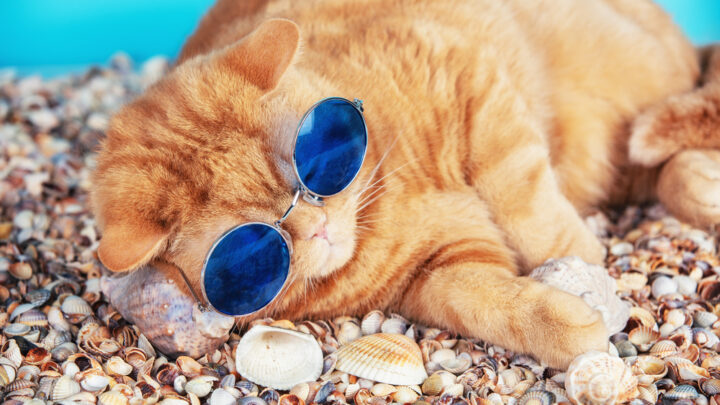If you’re a true seafood connoisseur as well as a cat parent, you probably want to know can cats eat scallops. You’d like to share these treats, that come from the depths of the ocean, with your four-legged family member but you’re not sure if you’re allowed to do so.
To make your feline savor scallops as much as you, it’s good to know a few things about this seafood. And since “Read before you feed” is the mantra of all cat owners, we’re gonna get started right away.
Scallops in brief
Scallops, as well as oysters, mussels, and clams, come from the family of mollusks. They usually come in attractive shades of pink and beige color and have a tender, yet chewy texture.
They’re residents of sandy bottoms and rocks, often sharing a habitat covered in seaweed. Scallops are considered a true delicacy in a shell. You can fry, grill, smoke, or steam them but they will always taste delicious.
Minerals such as zinc, magnesium, potassium, copper, selenium, phosphorus, and iron, are found in scallops. They make for a healthy treat when taken directly from clean seawater, and are the safest when cooked. However…
Can cats eat scallops safely?
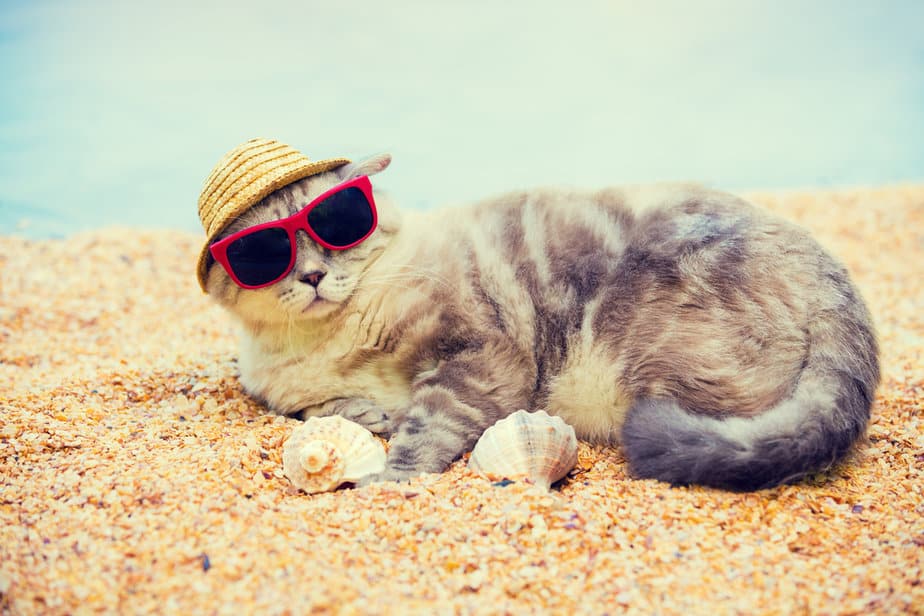
Yes, scallops are safe for your cat when cooked well. They can’t be poisonous if taken in smaller amounts. Since they have a great nutritional value, scallops are a good treat for your feline.
However, you should watch out that the scallops you cook don’t contain any garnish such as garlic and onion. These can be hazardous for your feline.
Make sure not to add any salt, either. High levels of salt can cause dehydration in cats, and it is already hard to get them to drink enough water. So, why make things harder for yourself and your little furry monster?
Scallops can be an occasional treat in your cat’s well-balanced diet, and should make for an interesting snack!
Are scallops healthy for cats?
Scallops are healthy for cats because they’re high in protein and low in fat. High protein levels can enhance heart and brain functions. However, scallops can’t replace animal-based proteins specific to the main meat diet.
Scallops contain important vitamins such as vitamin B12. This vitamin is good for the digestive and nervous systems. It enhances memory and creates a balance between other nutrients in the body.
Omega-3 fatty acids found in scallops help with inflammation, especially when it comes to allergies and dry skin.
If your cat has a potassium deficiency, she will benefit immensely from eating scallops! They’re high in potassium, which is essential for the proper function of vital organs. It will also help your cat’s nerves and muscles to get stronger.
So, the answer to the question “Can cats eat scallops, and will it benefit their health?” is yes!
Can kittens eat scallops?
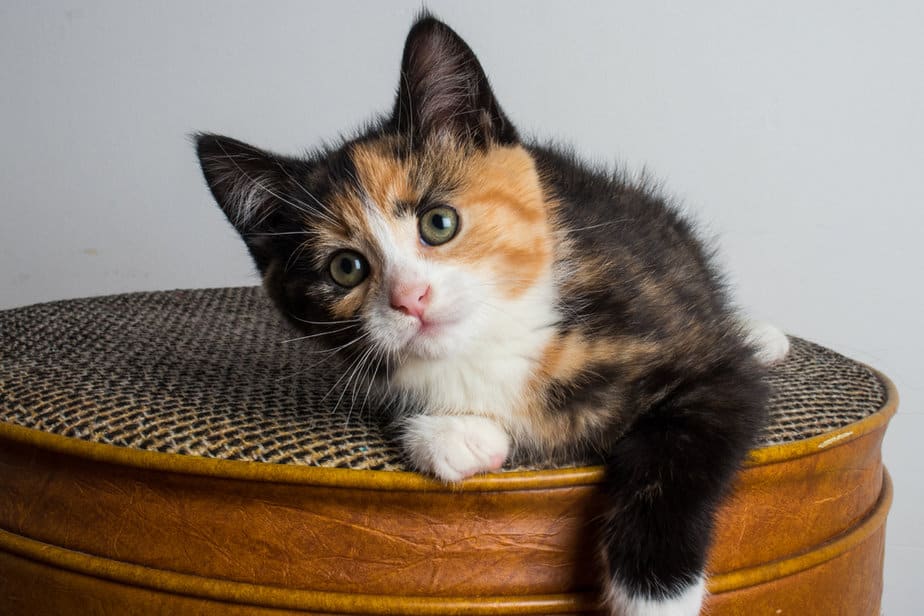
Kittens, on the other hand, shouldn’t eat scallops. Since they have a very sensitive digestive system, you better wait until they’re older before giving them this human seafood to try.
They should stick mainly to their mother’s milk for the first few weeks until they grow up and start losing the lactase enzyme. Kittens aren’t able to chew hard food properly, so this is one more reason not to share this delicacy with them.
Is it safe for my cat to eat raw scallops?
Raw scallops can be risky for your cat. They might contain bacteria and viruses, which can cause various stomach aches and digestion problems, such as diarrhea and vomiting.
You might not be sure if scallops are taken from clean waters. There’s a good chance that the water was polluted and your scallops, therefore, contain dangerous metals, which can cause food poisoning.
Be extra careful to clean them, and cook them thoroughly before feeding your feline. You don’t want to risk an emergency trip to the vet!
What if my cat eats too many scallops?
Too much of any human food isn’t good for your cat since we’re built differently and have different nutritional needs.
Even though scallops aren’t poisonous, if your cat eats too many she can get sick! She might vomit and get diarrhea, and you obviously don’t want this to happen to your feline. So, watch out not to leave her alone with a plate full of scallops!
Also, it would be best to first check with your vet if she has any seafood allergies. You’ll know if she needs to avoid these foods in the first place.
The most obvious symptoms are vomiting and diarrhea. If your cat starts feeling dizzy or gets a rash after eating scallops, don’t hesitate for a second to take her to the nearest vet clinic!
Scallops vs. mussels
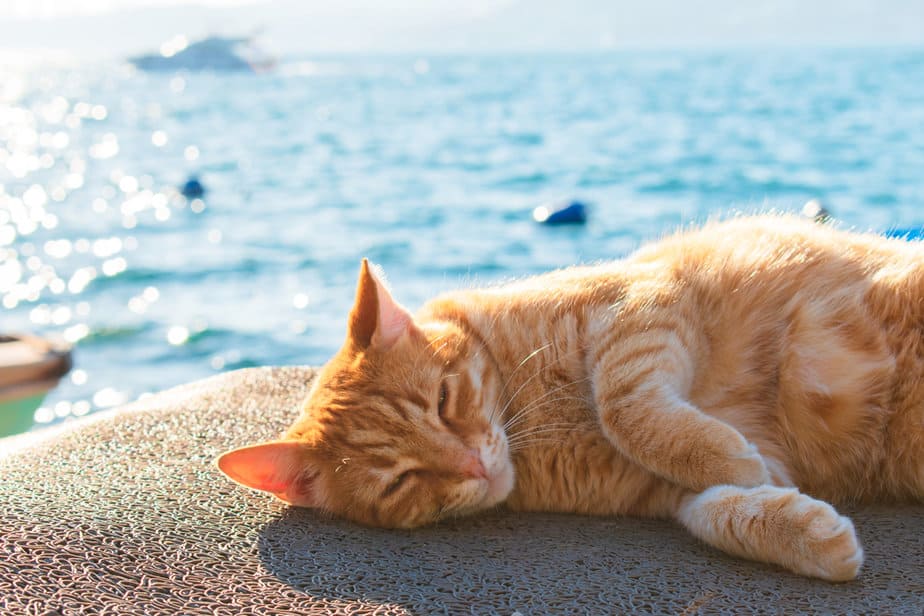
Cats can eat scallops, but you wonder if cats can eat mussels, too? Since we’ve mentioned that scallops and mussels are both members of the mollusks family, the answer is – yes, they can!
Mussels are rich in protein, carbs, and healthy omega-3 fatty acids. Your feline will require all of these to remain strong and healthy.
Minerals such as selenium, zinc, and folate are also found in mussels; as well as the highly important vitamin B12.
Be aware, however, that raw mussels can be dangerous for your cat. They can contain various parasites, just like raw scallops, and cause serious digestive problems like vomiting and diarrhea.
The safest thing to do is to boil them. This will remove those pesky bacteria and viruses. Forget adding any spices, too, and the mussels will make a safe treat for your cat.
The protein in mussels is easy for cats to absorb and therefore helps build their muscles. They’re also full of healthy fats that help cells perform their daily duties! Not to mention that the healthy omega-3 acids have an anti-inflammatory effect on skin and bones.
Interesting fact: mussels have more iron, calcium, potassium, and phosphorus than other meat such as chicken or beef. Imagine how healthy mussels are for your furry friend!
Scallops vs. clams
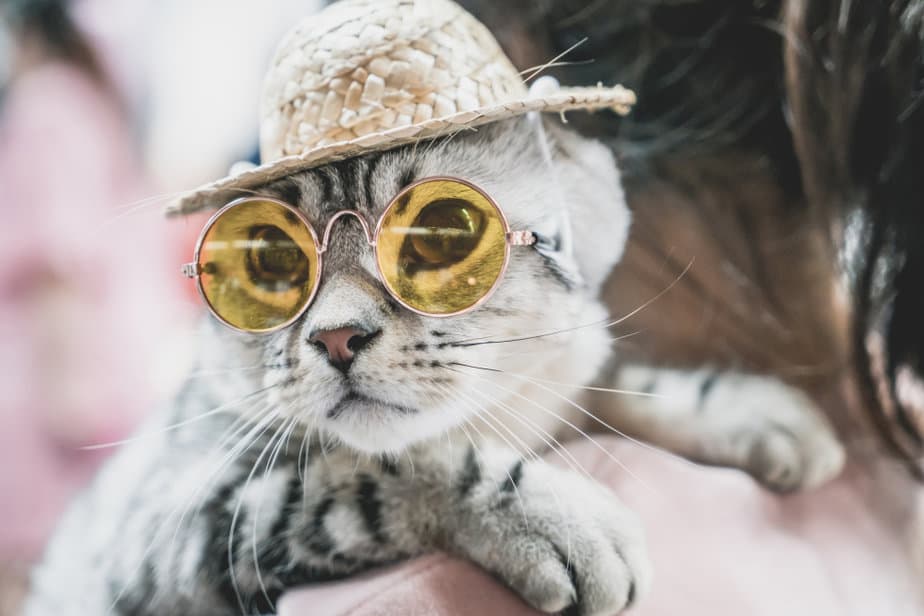
Clams are safe for your cat to eat as much as scallops are. But in smaller amounts, of course!
Cats need a source of taurine in order to thrive. They get it mostly from meat, but clams are a great source of it, too! However, they don’t contain some other proteins that are crucial for your feline to survive.
Remember that cats are obligate carnivores and seafood should only be used to supplement some vitamins and minerals.
Raw clams, as much as other raw meat and mollusks, aren’t recommended for cats. They can contain bacteria that causes digestive problems. So, make sure to cook them thoroughly to decrease the chance of poisoning!
Canned clams, on the other hand, contain lots of salt, which is not good for your feline. High levels of sodium can potentially endanger your cat pet’s life.
Another interesting option for elderly cats who have renal problems is clam juice. It will help them get the necessary amount of nutrients and liquid. Clam juice can be appetizing to cats while also hydrating them.
Don’t feed them clam juice without your vet’s approval, though. Some cats can be allergic to clams and any by-product of it.
Cats may enjoy clam chowder, as well. However, it often contains other ingredients that can cause allergic reactions if taken in larger amounts. Stay moderate, and there shouldn’t be any serious problems.
Scallops vs. oysters
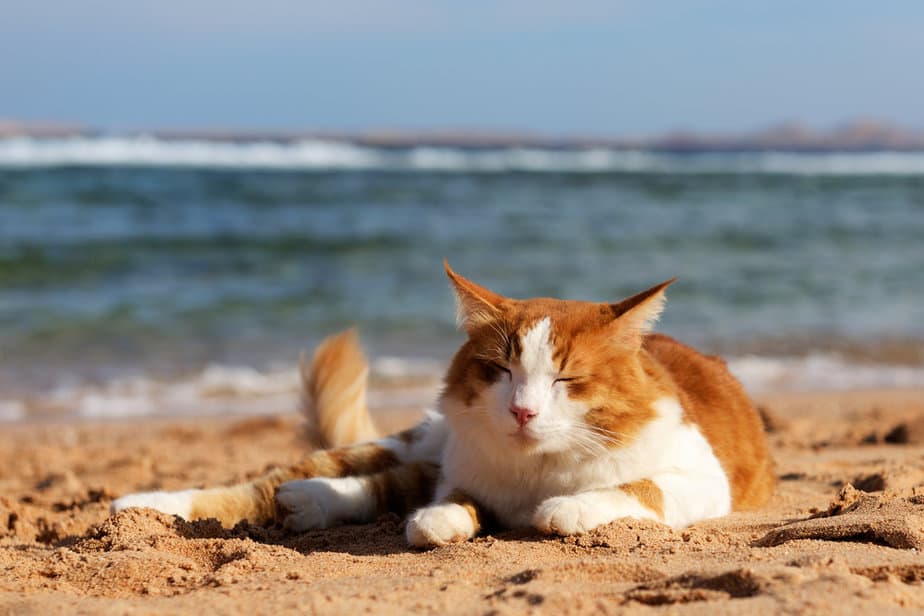
Can cats eat oysters, besides scallops? Well, sure they can! But only in very, very small quantities.
First of all, you should cross raw oysters off the list, because these contain bacteria that will cause serious stomach problems. Besides, they contain enzymes that destroy thiamine in your feline’s body.
Lack of thiamine can lead to heart attacks and even a comatose state. Even though cats like the taste and texture of oysters, you should make sure your feline friend does not over-indulge.
Only well-cleaned and cooked oysters are a safe choice. A piece or two as a treat is fine, and nothing more than that.
However, remember not to add any seasoning such as salt, pepper, garlic, onion, etc. These can also cause stomach aches, vomiting, and diarrhea.
Canned oysters can be a safer choice than raw ones. Just like other mollusks, they’re high in protein and healthy omega-3 fats that are good for the heart and brain.
Cats can be allergic to oysters, as much as to other mollusks. So, it’s always a good idea to consult your vet to decide whether your feline can have any oysters.
To sum things up
Cats can eat scallops, but in moderate amounts, and from time to time. Scallops are just a treat, and can’t replace a meat-based diet.
If your furry friend really likes these mollusks, feel free to give her a piece of well-cleaned, and well-cooked scallop!
You can mix scallops with other mollusks such as mussels, clams, and oysters, but avoid raw mollusks to protect her from poisoning and stomach aches. However, don’t feed your cat these if she’s just a kitten. She won’t be able to chew them.
Scallops are healthy, gourmet seafood full of protein and omega-3 acids, so feel free to treat your cat queen with a piece or two but don’t ignore the rules!
